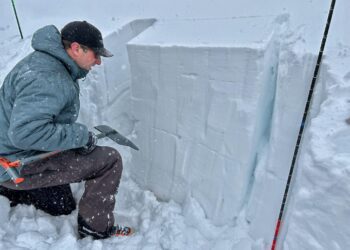By Kristin Gardner GUEST COLUMNIST

The recent reintroduction of the Montana Headwaters Legacy Act is a positive pathway towards the promise of healthy and protected rivers for future generations. Montana’s rivers and their surrounding vegetation provide habitat for our world class fisheries and abundant wildlife. They are essential to our communities, an asset to jobs and business, and a highlight for residents and visitors alike. If our rivers are going to be healthy and intact for future generations, it is time that we put into place essential protections.
The MHLA is the most significant legislation proposed for river conservation in Montana in over 45 years. If passed, this legislation would protect 20 rivers and 384 miles in the Upper Missouri and Yellowstone River systems, nearly doubling the number of Montana river miles protected by federal Wild and Scenic River designation.
Wild and Scenic designation is the highest form of federal river protection in the United States, and under this designation the MHLA would permanently protect the free-flowing nature, water quality, and outstandingly remarkable values of some of Montana’s most cherished and iconic waterways; among them are the Boulder, Gallatin, Madison, Smith, Stillwater and Yellowstone rivers.
These cherished rivers are facing serious threats from warming temperatures and shifting precipitation patterns, unprecedented growth, and high recreational use. The protections instilled by MHLA will benefit rivers by adding one more critical tool in the toolbox for ensuring our rivers are flowing clean, cold and healthy for future generations.
Montana’s rivers should not be bound by political persuasions. To move the MHLA forward, we will need to put partisan politics aside and work across the aisle. In a recent survey representing a broad and diverse political spectrum, 85% of Montanans stand in favor of this bill. This remarkable support proves that through more than a decade’s worth of collaboration and broad community input at the local level, there is hope for protecting Montana’s rivers at the highest federal level.
Since Senator Jon Tester first introduced the MHLA in 2020, the Gallatin River Task Force and our partners, including American Rivers, Greater Yellowstone Coalition, American Whitewater and others, have been working together to advocate for this legislation. Over the years, our collective efforts have been robust and focused. They have included meeting with local stakeholders, securing letters of support, rallying communities and supporting our position with solid data and economic information, as well as showcasing the anecdotes that tell the personal stories of how these rivers benefit our community health, businesses, and outdoor way of life.
On more than one occasion, we traveled to Washington, D.C. to engage with our congressional delegation about why these protections are necessary, and crucial for keeping Montana’s rivers healthy. Our goal continues to be focused on encouraging support from all of Montana’s federal decision makers to get the MHLA across the finish line and signed into law.
“To move the MHLA forward, we will need to put partisan politics aside and work across the aisle.”
We have heard concerns about how the MHLA might affect public access and land management activities along our rivers. With rivers protected under the Wild and Scenic Rivers Act for nearly 50 years in Montana—the Upper Missouri and three forks of the Upper Flathead River were designated in 1976—what legislation of this caliber has shown us is that it strikes a perfect balance between protecting rivers from dams and other harmful projects that may cause degradation, while also allowing traditional uses like recreation, grazing and forest management to continue.
Increasing occurrences of algae blooms, river closures and recent trout declines in our rivers puts even more urgency on the need to act now. Please consider reaching out to our Montana delegation about the importance of passing the MHLA in 2024. With the holidays quickly approaching, this action is the greatest gift you could give to our rivers and our children.
Here are the ways to reach Montana’s Congressional delegation:
Senator Jon Tester: 202-224-8594
Senator Steve Daines: 202-224-2651
Representative Matt Rosendale: 202-225-3211
Representative Ryan Zinke: 202-225-5628
For full contact information, visit: https://mt.gov/govt/congressional_delegation.aspx
Kristin Gardner is the Chief Executive and Science Officer of the Gallatin River Task Force, and can be found out on the Gallatin with her son and husband when not working for healthier rivers.











